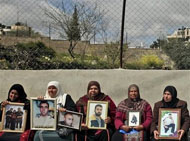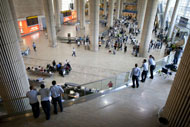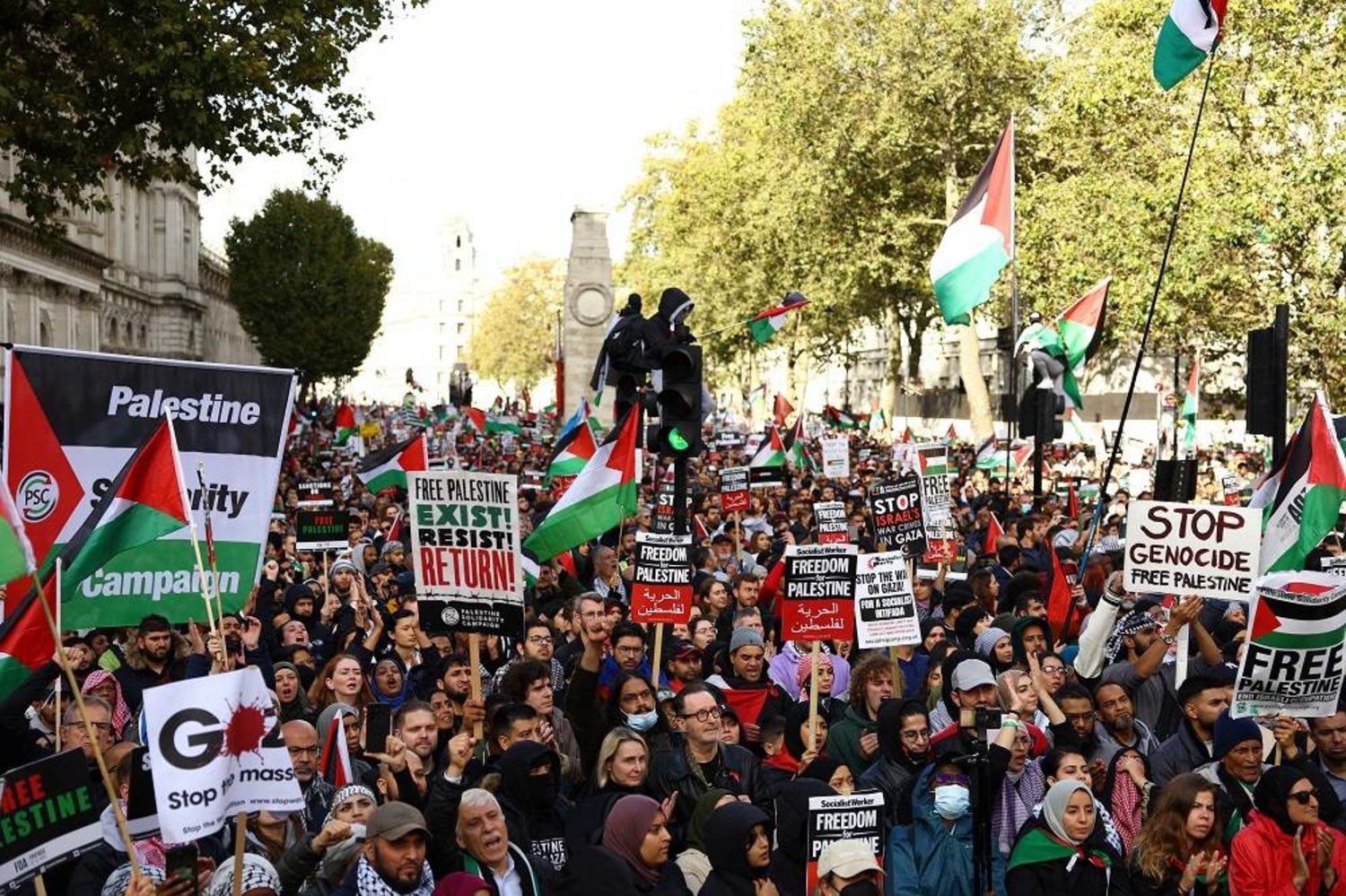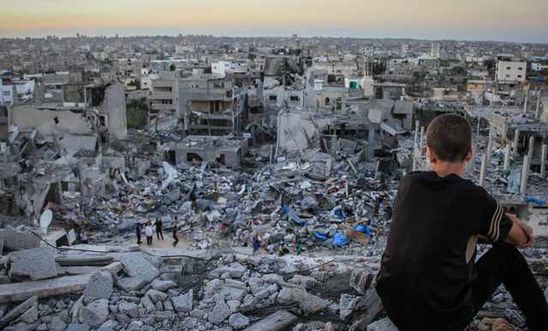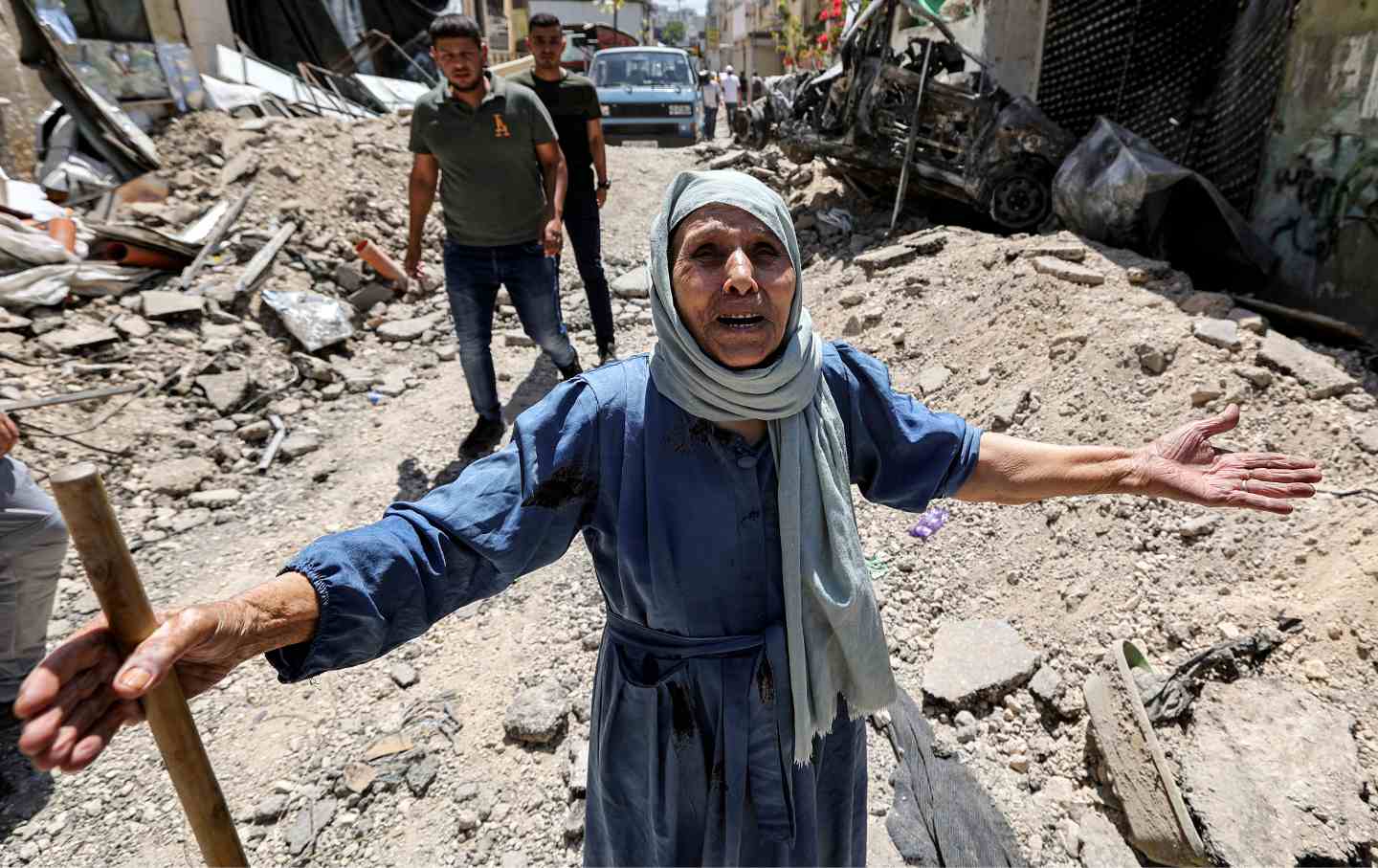April 17 is Palestinian Prisoners’ Day, which for years has been marked with sit-in tents, protests and solidarity actions both here and around the world in support of Palestinian political prisoners in Israeli jails.
This year will be no different, especially for mothers who have waited year after year for their sons to come home. At present, there are close to 10,000 Palestinians in Israeli jails. Many have been sentenced, some serving consecutive life sentences, some years and some months. Others are in administrative detention, which allows Palestinians to be held without charge in accordance to a ‘secret file’ for any length of time, usually for renewable six month stretches. According to the Israeli human rights organization B’Tselem, as of February, 2009 there were 560 Palestinians in Israeli administrative detention facilities, two people who have served over four years without ever being charged. As for children, classified as those under the age of 18, also according to B’Tselem, there were 346 as of February, 54 of them under the age of 16.
The statistics can go on, of course. There are over 100 incarcerated women, men in solitary confinement, those still undergoing grueling interrogations by Israel’s intelligence agency, the Shin Bet. There are those who are in dire need of medical attention and are instead given an aspirin for their ailments. And there are those unfortunate souls who have perished behind Israeli bars after years of isolation from their loved ones. Close to 200 Palestinian prisoners have died inside Israeli jails since the latter’s occupation of the West Bank, Gaza and east Jerusalem in 1967.
There is ample information on Palestinian prisoners but unfortunately not enough emphasis is put on their plight or efforts for their release. Recently, the prisoner issue was back in the headlines because of a single Israeli soldier, Gilad Shalit. Shalit, in the hands of Hamas and Hamas affiliated groups in Gaza since his capture in 2006, has been the center of a prisoner exchange debate for several months now. Hamas, who is negotiating with Israel, albeit indirectly through Egypt, has demanded the release of 1,000 Palestinian prisoners in exchange for the Israeli soldier, including hundreds of prisoners Israel refuses to release because of their alleged involvement in Israeli deaths. As a result, the exchange has not yet taken place and seems to have been relegated once again to the back burner now that Israel’s new government is being led by none other than Benjamin Netanyahu.
There have, nonetheless, been prisoner exchanges between the Palestinians and Israel throughout their turbulent history. The most significant of these was the 1985 prisoner exchange between three Israeli soldiers and 1,150 Palestinians in a deal cut with the Popular Front for the Liberation of Palestine, General Command. Other exchanges between Hizbullah and Israel have also taken place where hundreds of Palestinian and Lebanese prisoners have been set free in exchange for a few Israeli soldiers.
Israel, however, has not seemed to learn its lesson where Shalit is concerned. It seems not to recall what happened in the botched 1994 rescue operation of Nachshon Wachsman, an Israeli prisoner captured and held in the West Bank village of Bir Nabala. Instead of agreeing to the proposed prisoner exchange with Hamas, Israel refused to negotiate, rather opting for a military operation to free him. The result was the deaths of not only the Hamas captors but that of Wachsman as well.
Still, even if Israel released the 1,000 prisoners Hamas is demanding in exchange for Shalit, that would still leave thousands left behind bars. The prisoner issue has been one that is placed on the table of negotiations time and again only to be swept off in the face of more “pressing” issues. While the Palestinian leadership may feel other matters are more in need of solving, such as Jerusalem, settlements and the Gaza siege, this provides little solace to those with loved ones living in isolation. Many families have not seen their sons, daughters, husbands and brothers for years on end because of Israel’s countless impediments to family visits. Those who live in the Gaza Strip cannot travel to Israel to visit and those in the West Bank need special permits and a security clearance from Israel to make the trip, a clearance that can be canceled or not granted for the flimsiest of excuses – a distant relative is involved in the resistance, a document is missing from the application – and so on and so forth.
The point is, the plight of Palestine’s prisoners should always be at the forefront of negotiations and of popular support. This seems to be the case for those with a more public repertoire such as West Bank Fateh Secretary Marwan Barghouti or PFLP Secretary General Ahmad Saadat. Barghouti and Saadat are both on the list of prisoners Hamas has demanded released in exchange for Shalit. Israel has rejected any possibility of releasing Saadat, but has not outright turned down the prospect of swapping Barghouti for the soldier.
But what about those anonymous foot soldiers who have selflessly offered themselves for the sake of this country? They are no less important, their intentions no less noble. April 17 is officially Palestinian Prisoners’ Day. But our solidarity, our actions and our thoughts should not be limited to one day a year. The prisoners, the backbone of the cause, should not be forgotten, not now as they continue to endure the harsh reality of being behind enemy bars, nor later when they come home and need to reintegrate in society.
It is easy to sideline a cause that is not visually present. Confronting the military checkpoints or the separation wall or Israel’s invasions is a tangible fight; they encroach on our everyday lives like a cancerous growth. It is impossible to ignore their affects as they impact us on a very personal level. In a sense, the prisoner cause is no different. To grasp the enormity of the prisoner issue, one only has to envision a day in the life of a mother, whose one pervasive thought is when she will see her son again.
Joharah Baker is a Writer for the Media and Information Program at the Palestinian Initiative for the Promotion of Global Dialogue and Democracy (MIFTAH). She can be contacted at mip@miftah.org.




